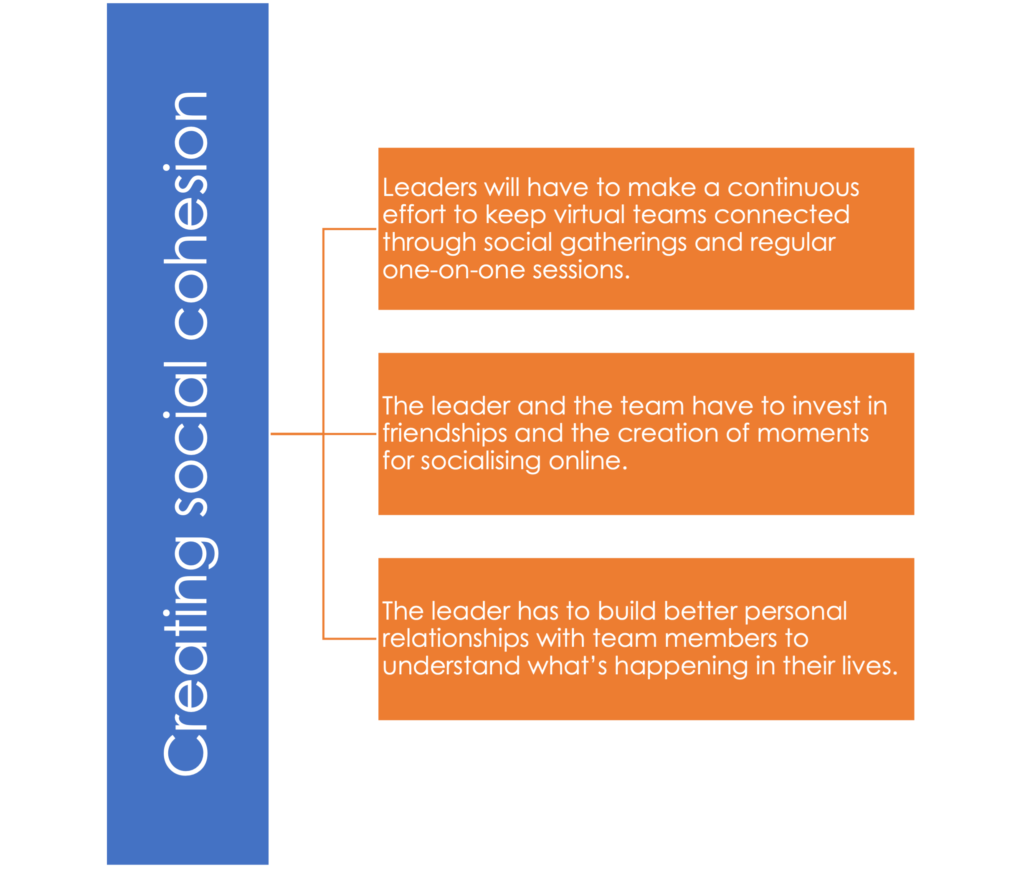By Carli Uys (MCom Industrial Psychology and MCom Communication studies)
Some leaders might assume that being a leader in the office is easier than being a leader virtually. In the office a leader can see team members, observe their behaviours and struggles, build stronger relationships with them, give guidance where needed and motivate team members to help them achieve their goals.
When people work virtually, they have the opportunity (if they so choose) to show their leaders only what they want them to see. Leaders only get small glimpses of insight into their team members’ lives through a virtual call, instant messages and emails. The leader will not have a full picture of what is truly going on at home. They will try to hide that the atmosphere at home is tense, or that one of the kids just had an accident.
In the now virtual working world, each employee is facing different challenges while working from home, such as unique stressors, relationship challenges and domestic circumstances. Employees do not have tech support and have to become their own tech support ‘manager’, they are also battling with bandwidth and other obstacles.
Leaders will have to take a different management approach when leading and managing their virtual teams. Leading teams virtually requires of the leader to improve on communications skills, through having great writing skills that translates the message correctly as well as translating important things like empathy and understanding through written words.
The virtual world is putting the leader’s leadership skills to the test. Research showed that leaders now have to continuously be on their ‘A-game’ to have teams and communities deliver excellent performance while working virtually.
So, what makes a great ‘virtual’ leader?
The answer is, being a transformational leader. A transformational leader focuses on empowering people and tapping into deeper needs and motivations. Research has found that ‘virtual’ employees respond well to transformational leadership because the change in approach fits the new dynamics at play.
The research findings indicate that leaders should apply the following to manage virtual teams better:



Most organisations are settling into the fact that home-working is the foreseeable future of work. The best leaders will have to learn quickly to find new ways to motivate and engage their team members.